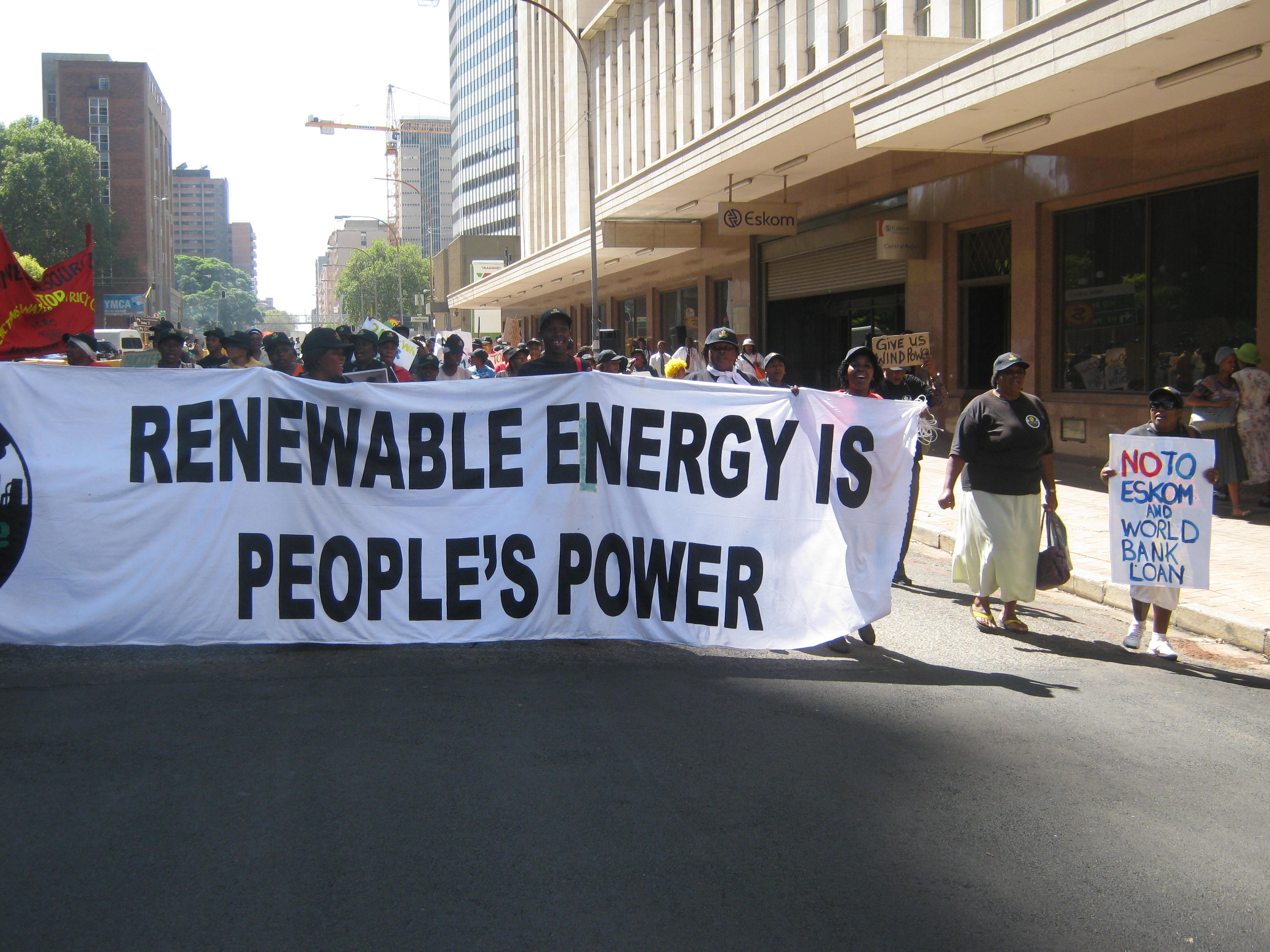- Blog
- Climate & Energy Justice
- Green Climate Fund
- 117 groups urge Climate Investment Funds to sunset, support for Green Climate Fund
117 groups urge Climate Investment Funds to sunset, support for Green Climate Fund
by Karen Orenstein, Deputy Director of Economic Policy

Donate Now!
Your contribution will benefit Friends of the Earth.
Stay Informed
Thanks for your interest in Friends of the Earth. You can find information about us and get in touch the following ways:
As the World Bank-International Monetary Fund annual Spring Meetings get underway, 117 organizations from around the world today urged government funders of the World Bank’s Climate Investment Funds to pivot away from financing the CIFs and to redirect funds to the new UN Green Climate Fund. The apparent scarcity of funds available to jump start the Green Climate Fund makes the call all the more pressing. Amongst the letter signers were organizations based in each of the countries financing the CIFs.
The groups note in a letter that the CIFs were designed to sunset, or expire, when the Green Climate Fund is operational. They urged countries to:
adhere to the sunset clause and actively support the GCF as the primary international financial institution for climate finance. New contributions to the CIFs could create a disincentive for the early operationalization of the GCF, encourage expansion of the CIFs, and prolong their operation.
In order to allow the GCF to take on board lessons learned from the CIFs experience, the letter sent today called for a fully independent review of the track record of the CIFs – one not conducted by any entity associated with the World Bank or other multilateral development banks. The review is needed to measure the CIFs’ performance in key areas, including country and local community ownership; sustainable development, social and environmental impacts; implementation and scale-up of long-lasting mitigation and adaptation activities; private sector leverage and public risk; and transparency and accountability.
Civil society groups are urging governments to back the Green Climate Fund because it offers an opportunity to better meet the needs of developing countries and the climate crisis. The World Bank’s continued high levels of fossil fuel financing, troubling human rights and environmental records, and lack of democratic credentials have driven worldwide resistance to its attempted power grab over climate financing. Many negotiators from developing countries and activists across the globe pushed instead for a dedicated climate fund under the UN Climate Convention that would put the adaptation and mitigation needs of people in developing countries first – an institution based on sound environmental integrity, socioeconomic justice, and efficacy. Though certainly not an easy task, the opportunity to shape the GCF to meet these goals has arrived. The first board meeting of the Green Climate Fund is expected to take place at the end of May.
The release of the letter coincided with a panel discussion in Washington, D.C. entitled, “The Climate Investment Funds 4 years later: Learning lessons for the Green Climate Fund.” Friends of the Earth US presented on the state of play of the GCF, while colleagues from the Institute for Climate and Sustainable Cities, Aksi – for gender, social and ecological justice, and Gender Action presented case studies on experiences with the CIFs in the Philippines (Clean Technology Fund and the Asian Development Bank) and Indonesia (Forest Investment Program) and on the gender impacts of the Pilot Program on Climate Resilience. Particular concerns raised about the CIFs included a lack of country ownership, flawed engagement and consultation processes with stakeholders, failure to address the drivers of deforestation and forest degradation, and, in some circumstances, the insufficient inclusion of gender equity and human rights protections.
Photo credit: groundWork/Friends of the Earth South Africa
